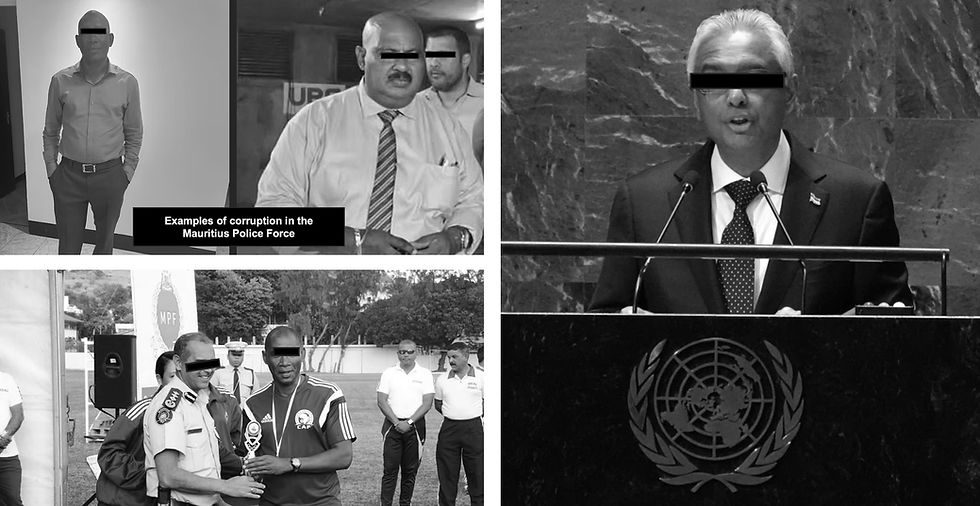Is Mauritius an Honeymoon Destination or an ordinary Crime Scandal Island?
- Foreign Prisoners

- Jun 3, 2024
- 3 min read
Updated: Aug 15, 2025

When thinking of Mauritius, it's common to envision it as a dreamy honeymoon destination with pristine white beaches and crystal-clear azure waters, surrounded by warm and welcoming people living harmoniously. However, this idyllic image stands in stark contrast to the reality on the ground, warranting a crucial caution for anyone considering a visit or relocation to Mauritius.
The country grapples with fundamental issues that pose risks to both residents and visitors. Security is a major concern, as Mauritius falls short in providing the level of safety expected in Western nations. The police force is plagued by escalating corruption, fostering a culture of lawlessness that undermines the rule of law. Tragically, human rights violations persist in Mauritius, characterized by rampant abuses. The pervasive corruption within the police force and the prevailing lawlessness expose individuals to arbitrary treatment at the hands of law enforcement.
With police officers earning very low salaries—often less than $500—it has become a common practice for them to exploit citizens or betray their trust to supplement their own income, turning extortion into a revenue-generating scheme. A disturbingly high percentage of the population is ensnared in heroin addiction, earning the island the ominous title of "Narco Island."
Criminals in Mauritius make a lot of money from the international trade in cocaine, heroin, MDMA and cannabis. They launder their criminal assets and undermine society by, for example, bribing officials. The Mauritian government is doing nothing or little to disrupt these criminal activities as much as possible. It is a revenue model for the island. A lot of money comes in this way from tourists who do not know that there are penalties of up to 40 years with enormous consequences.
There should be an official warning to warn tourists about the high rate of violent robberies. There are many known cases where tourists are robbed in their AirBNB and forced to hand over their valuables and money under force using machetes. There have also been cases of tourists being raped or abused through the use of serious violence or the threat thereof. Most of the Mauritians responsible for this were under the influence of hard drugs or alcohol.
Economically, Mauritius lacks the stability found in more developed countries. The local currency, the Mauritian Rupee, holds little value, and the financial system is fragile, heavily reliant on tax collection. However, these taxes often diverge from international standards, breaching global tax treaties. The pervasive lawlessness further exacerbates this issue, leading to widespread treaty violations. The positive narratives depicted in the media about Mauritius are essentially a facade masking a fragile economic reality built on illusions. Stability is a scarce commodity in the country, with the economy relying heavily on procrastinated payments and microloans provided by local banks. Unfortunately, these loans are seldom repaid, primarily due to the exploitation of loopholes in the flawed financial civil law system. Pursuing a financial claim through legal channels can be an arduous process, stretching up to 12 years, leading many to abandon their claims altogether.
Mauritius' media landscape is tightly controlled, stifling negative news from reaching beyond its borders. Consequently, crucial warnings for tourists are often suppressed or overlooked. Alarmingly, over 75 foreign nationals are currently detained in Mauritius, with this figure fluctuating. This detention system, in a troubling twist, operates as a revenue stream for the island's judiciary, benefitting police officers, lawyers, prosecutors, and judges at the cost of flouting international human rights conventions. #crime #mauritius #narcoisland #travelblog #travel #traveller #travelgram #human #world



Comments